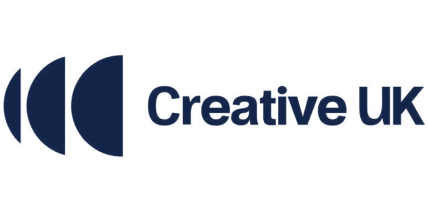To state the obvious, it is more important than ever to understand and manage the cash flow of your business.
We appreciate that many businesses will have already taken these steps, are currently juggling and making difficult decisions. Much is common sense but we hope that you will find it of help.
Table of contents
1. Cash is king
The start point is what is your current cash position at the bank? And where you have funding facilities, such as an overdraft, what is the remaining headroom in those facilities?
Then there is your “Burn Rate” which is a measure of how fast a company spends its available cash. This is a concept usually associated with start-ups who have yet to generate revenue but is particularly relevant in the current crisis. In simple terms if a company burn cash too fast, they run the risk of running out of money and going out of business. Typically burn rate is measured in months but during a crisis is could be weeks or even days.
The action is then what can a company do to slow down its burn rate and access additional sources of funding? Can you buy yourself time to get through this period?
When looking at your current facilities remember to consider the impact of the crisis on your ability to continue to utilise your existing facilities. What are the terms? For example many business use Invoice Discounting (ID) facilities to fund their businesses. While there will be an absolute limit on the funding available it will also be typically restricted:
- as a percentage of the qualifying debtor book (say 80%)
- to qualifying debts (say debts more than 90 days do not qualify)
- by over concentration with any one customer (say 10%)
Every agreement will be different.
All of these criteria will be put under further strain.
2. Debtors
Collecting in the cash from your debtors through effective credit control is standard good business practice and this is even more important now. However the environment has changed. In many cases your customers will struggle to pay you on terms and the normal debt recover processes may not be available to you. Ultimately, you cannot collect what does not exist.
Communication with your customers is key. Talk to them and understand what their position is and, if necessary, discuss what revised credit terms and payment schedule is possible so that you can plan your own cash flow.
You will need also to risk assess your debtors. In looking at your debtor list which debts are likely to remain recoverable; it’s just a question of timing, and which are likely to be bad debts. The ones at risk are likely to be the ones you may have had concerns about before the Coronavirus outbreak and might now be pushed over the edge.
If your debtor book is insured check the terms of the policy. Make sure that you take all necessary steps to be able to make a claim under the terms.
Make sure that new invoicing is still happening as quickly as possible. Key to getting the money in, is getting the invoices out, with the correct purchase order details where appropriate. Your customers may not be able to pay these invoices within terms but unless you get them out you can’t start the conversation.
3. Work in progress and orders
If you have work in progress of any kind or confirmed orders go back to your customer. Understand whether they still need the work and when they will need it. If they request a delay to delivery can they pay for the work you have already done? Do they already owe you money for previous work, if so do you release the work on a pay as you go basis (i.e. get your cash before delivery and do not increase your exposure to that customer)?
Of course there are legal obligations that your customers will need to honour, but consider it first from a cash flow perspective. Enforcing a contract will likely take many months and will your customer be in a position to settle in any event?
What does the above mean to the relationship with your own suppliers? Are they able to work with you to mirror the changes in your own customer requirements?
Coming back to the credit insurance, do not assume that you will automatically be covered if you are completing work. The banks/insurance companies are continually revising (downwards) the level of exposure they are willing to take with each company. Keep on top of this. Remember that the policy is likely to kick in only once you have invoiced and the product/service has been delivered.
4. Overheads
What overheads can be delayed, reduced or avoided? If your business activity has reduced, some variable costs such as travel will reduce automatically and some costs can be cancelled/suspended as they are simply not needed.
Are you able to reduce your fixed costs or convert those fixed costs into a variable cost, for example agreeing a service on a turnover basis (for example rent) or an “as needed” basis (subscriptions)?
Many agreements have notice periods attached or protections built in for default but one would hope that there can be a sensible conversation in most cases.
We need to be aware that the supplier on the other side of the conversation is likely to be in a very similar position. They are dealing with the same stresses and pressures. It is about communicating so that resources can be matched to need as far as possible.
5. Loan (Capital) Repayment Holidays
Talking with your bank and other lenders, you have agreements with to see if you can agree a loan repayment holiday to assist with cash flow. This can include the commitments you have with leasing companies.
Care needs to be taken in the negotiations but with historically low rates of interest this should not put a significant additional financial burden on the business over the longer term.
6. HMRC Time to Pay arrangements (TTP)
The VAT return still needs to be prepared and submitted.
In addition businesses with outstanding tax liabilities (including PAYE, NIC, VAT Corporation Tax) may be eligible for further support which will be reviewed on a case by case basis.
A dedicated helpline has been set up by HMRC at 0800 024 1222 (and webchat). It is a simple process and broadly HMRC will agreed deferment of taxes over a 6 to 12 month period.
7. Business Rates Relief and Financial Support for Commercial Properties
For businesses that operate from commercial premises, business rates relief and grants can be essential tools for managing cash flow during economic downturns.
While the COVID-era reliefs have expired, various support mechanisms remain available for businesses facing financial difficulties.
Governments and local authorities continue to offer business rates support for eligible businesses.
- Small Business Rate Relief (SBRR) – Many regions provide discounted or zero business rates for small businesses occupying properties with a low rateable value.
- Retail, Hospitality, and Leisure Relief – Certain businesses in these sectors may still qualify for partial rate reductions, depending on government policies.
- Enterprise Zone Discounts – Businesses operating within designated enterprise zones may be eligible for reduced rates to encourage investment.
- Hardship Relief – Some local councils allow businesses experiencing financial distress to apply for discretionary relief on a case-by-case basis.
8. Managing Staff Costs
For many of us this is our biggest cost and in practice the most challenging to manage.
You will need to make an assessment of your business needs over that period; match your staff cost to your immediate revenue as far as is possible (for some this is easier than for others).
If you cannot furlough your staff because you have some committed work that they need to work on is offering reduced hours an alternative (subject to HR advice).
Communicate with your staff. They will understand and want to help where they can.
9. Financial Support and Tax Relief Options in Times of Crisis
Access to emergency funding can be crucial for businesses navigating financial uncertainty.
While the COVID-era Coronavirus Business Interruption Loan Scheme (CBILS) is no longer available, businesses today still have access to various financial relief programs and tax measures designed to support cash flow during economic downturns.
Many governments and financial institutions offer loan schemes tailored to businesses facing temporary hardship.
- Government-Backed Loan Guarantees – Many countries have loan guarantee programs where the government supports lenders, reducing the risk and easing access to credit.
- Recovery Loan Schemes (RLS) – In some regions, CBILS has been replaced by ongoing schemes designed to help businesses access finance for recovery and growth.
- Emergency Grants and Hardship Funds – Local authorities or sector-specific grants may be available for businesses facing cash flow disruption.
During crises, governments often introduce tax relief measures to help businesses stay afloat. Consider the following:
- Payroll Tax Deferrals and Reliefs – Governments may introduce temporary reductions or deferrals in employer social security or payroll tax obligations.
- Time to Pay (TTP) Arrangements – Many tax authorities allow businesses to negotiate deferred tax payments, spreading liabilities over a longer period.
- Business Rate Reliefs – Some local governments offer reductions or exemptions on property-based taxes during economic downturns.
- R&D Tax Credits – If your business invests in innovation, you may qualify for research and development (R&D) tax credits, which can provide a valuable cash boost.
- Loss Carryback Provisions – Some tax laws allow businesses to offset current losses against past profits, leading to tax refunds.
10. Preparation of Cashflow Forecasts
You need to be able to pull together all the actions you have taken to see what the overall impact is on your business.
Depending on the nature of the business you do not necessarily have to prepare sophisticate forecasts but all businesses should prepare a rolling 13 week cash flow and keep it updated on a regular (daily?) basis.
This will help you identify the crunch points in that cash flow. Of course cash flow forecasts are based on making assumptions about the future but in such a fast changing environment this is difficult for anyone.
Stress test your assumptions by considering the impact of different scenarios. Consider what your response would be to them.
11. Summary
- What is my current cash position?
- Credit control is key
- Get your invoices out
- Review all your overheads
- Talk to your customers
- Talk to your suppliers
- Talk to your bank
- Talk to your employees
- Have you used all the government schemes available to you?
- Prepare a 13 week rolling cash flow forecast? When are your crunch points?








